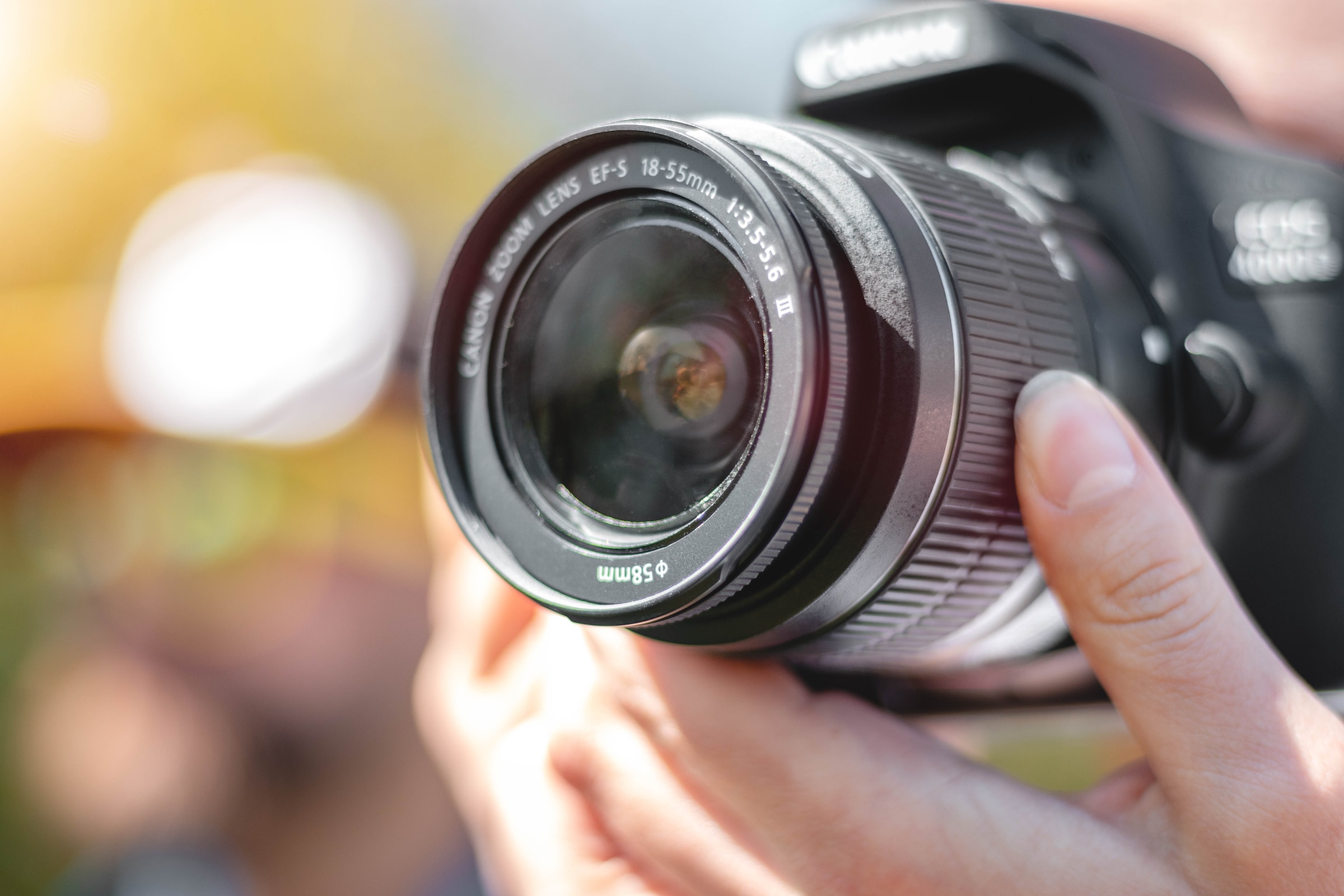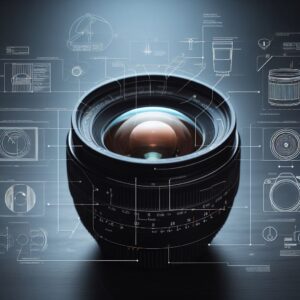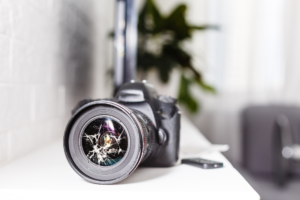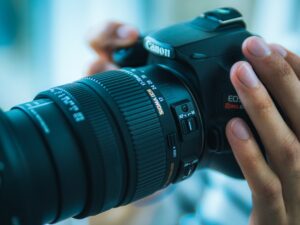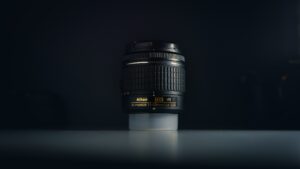Do camera lenses hold their value? Absolutely! If you’re contemplating a significant investment in photography gear in this rapidly advancing tech era, you’re asking the right question.
Unlike many tech gadgets that depreciate quickly, camera lenses can be a different story altogether. They can last you a lifetime if well-maintained and even appreciate in value.
Note: If you’re still unsure about which lens to invest in, our guide on what camera lens do I need offers some valuable insights.
What You’ll Discover in This Guide
- Why camera lenses are valuable assets in your photography kit.
- How to properly maintain your lenses for long-term use.
- Answers to frequently asked questions about lens value and lifespan.
| Topic | Summary |
|---|---|
| Value Retention | Camera lenses generally hold their value well and can even appreciate under certain conditions. |
| Longevity | With proper care, lenses can last for decades and don’t become obsolete quickly. |
| Adaptability | Lenses can often be adapted to new camera bodies, making them a versatile investment. |
| Photo Quality | A good lens significantly enhances the quality of your photographs. |
| Essential Gear | Lenses are a crucial part of any photography kit. |
| Maintenance | Proper cleaning and storage are key to maintaining lens value. |
| Lens Filters | Using lens filters can add an extra layer of protection and help in value retention. |
The Enduring Value of Camera Lenses
Camera Lenses: Built to Last
First things first, camera lenses don’t expire.
Unlike perishable goods or even some tech gadgets that have a limited lifespan, a quality lens can last for decades. This is especially true if you take good care of it.
The glass elements inside a lens don’t degrade over time if maintained properly.
What Contributes to Lens Longevity?
- Quality of Materials: Higher-end lenses are often made of superior materials that withstand the test of time.
- Mechanical Durability: The internal mechanisms of a lens, like the aperture and focus rings, are built to last.
- Glass Elements: The actual glass used in lenses is highly resistant to wear and tear.
Adaptability: The Superpower of Camera Lenses
One of the most compelling reasons camera lenses hold their value is their adaptability to new camera equipment.
Let’s say you decide to upgrade your camera body to a newer model or even switch to a different brand. In many cases, you won’t have to buy new lenses.
Adapters are available that allow you to use your existing lenses with new camera bodies.
Why is Adaptability Important?
- Cost-Efficiency: You save money by not having to purchase new lenses every time you upgrade your camera body.
- Familiarity: Using lenses you are comfortable with on new camera bodies makes the transition easier.
- Versatility: Some lenses are designed to be compatible across different types of cameras, such as mirrorless and DSLR.
Note: If you’re wondering about the compatibility of lenses with different camera bodies, our article are camera lenses universal dives deep into this topic.
Elevate Your Photography: The Impact of Quality Lenses
The Magic Behind Picture Quality
If you’re wondering why camera lenses are so valuable, look no further than the quality of photographs they can produce.
A lens is not just a piece of glass; it’s an intricate assembly of elements that work together to capture light and project it onto your camera’s sensor.
The better the lens, the better the image quality.
Factors That Lenses Influence:
- Sharpness: A good lens can capture crisp, clear images.
- Bokeh: The quality of the blurred background in a photo is often determined by the lens.
- Color Rendering: High-quality lenses can produce vibrant, true-to-life colors.
Pro Tip: If you’re keen on capturing stunning urban landscapes or street scenes, our guide on the best lens for urban photography can help you make an informed choice.
The Heart of Your Photography Kit
Let’s be clear: your camera body is important, but it’s the lenses that are the essential part of your photography kit.
Think of the camera body as the brain, but the lens is the eye. The lens determines what the camera will capture and how it will be rendered. We discuss this concept in more detail here.
Why Lenses Are Essential:
- Versatility: Different lenses serve different purposes. From wide-angle to telephoto, each lens offers a unique perspective.
- Creative Control: Lenses allow you to manipulate depth of field, focus, and even the artistic style of your photos.
- Longevity: As we’ve discussed, lenses can outlast camera bodies, making them a long-term investment.
Note: If you’re just starting out and wondering what lenses to get first, our article on what camera lens do I need provides a comprehensive guide.
Preserving the Value of Your Lenses: The Role of Maintenance
The Importance of Proper Care
So, you’ve invested in a quality lens. Great! But owning a lens is just the first step.
To ensure that your lenses hold their value, proper care and maintenance are crucial.
A well-maintained lens not only functions better but also retains its value over time.
Maintenance Checklist for Value Retention:
- Regular Cleaning: Keeps the lens free from dust and smudges.
- Proper Storage: Protects the lens from environmental damage.
- Periodic Checks: Ensures that the lens is functioning correctly.
Cleaning: More Than Just Aesthetics
Cleaning your lens is not just about making it look good; it’s about maintaining picture quality. Dust, fingerprints, and smudges can significantly affect the quality of your photos.
Steps for Effective Lens Cleaning:
- Use a Lens Blower: Remove loose dust particles.
- Lens Cleaning Solution: Apply a lens-specific cleaning solution to a microfiber cloth.
- Gentle Wiping: Wipe the lens surface gently in a circular motion.
- Dry Off: Use a dry section of the cloth to remove any remaining moisture.
For the ultimate guide to cleaning your camera lens properly, check out our article here.
Storing Your Lens: An Ounce of Prevention
The way you store your lens can have a significant impact on its longevity and, by extension, its value. Proper storage protects your lens from environmental damage such as moisture, extreme temperatures, and dust.
Best Practices for Lens Storage:
- Use Lens Caps: Always put the front and rear lens caps on when the lens is not in use.
- Store in a Padded Bag: A padded lens bag provides extra protection against physical damage.
- Avoid Extreme Temperatures: Store the lens in a climate-controlled environment.
- Use Silica Gel Packs: These help to absorb moisture and keep the lens dry.
Note: For more in-depth information on lens storage, check out our guide on how to store camera lenses properly.
Extra Layer of Protection: The Role of Lens Filters
Why Use Lens Filters?
Another often-overlooked factor that contributes to the value retention of your camera lenses is the use of lens filters.
These are not just for enhancing your photography; they also serve as an extra layer of protection for your lens.
Pro Tip: To understand the different types of lens filters and their uses, check out our article on why use a lens hood.
Benefits of Using Lens Filters:
- Physical Protection: Shields the lens from scratches, dirt, and minor impacts.
- Enhanced Photography: Some filters can improve color balance and reduce glare.
- Ease of Cleaning: It’s easier to clean or replace a filter than the lens itself.
Types of Lens Filters for Protection:
- UV Filters: Primarily used to protect the lens from scratches and smudges.
- Polarizing Filters: Reduce glare and reflections while offering lens protection.
- Neutral Density Filters: Useful for long-exposure shots and also provide physical protection.
Conclusion: The Long-Term Value of Camera Lenses
Your Investment in Focus
As we wrap up this ultimate guide, let’s revisit the core question: Do camera lenses hold their value? The answer is a resounding yes.
Camera lenses are a significant investment that can serve you well for decades if properly maintained.
Built to Last
Unlike many other tech gadgets that become obsolete within a few years, camera lenses offer continued functionality and lack of expiration.
Their adaptability, role in enhancing photo quality, and longevity make them a cornerstone of any photography kit.
A Final Word on Maintenance
To ensure that your lenses retain their value over the long term, proper maintenance is key.
From regular cleaning to thoughtful storage and the use of lens filters, each step you take contributes to the lens’s value retention.
Thank you for reading, and happy shooting!


